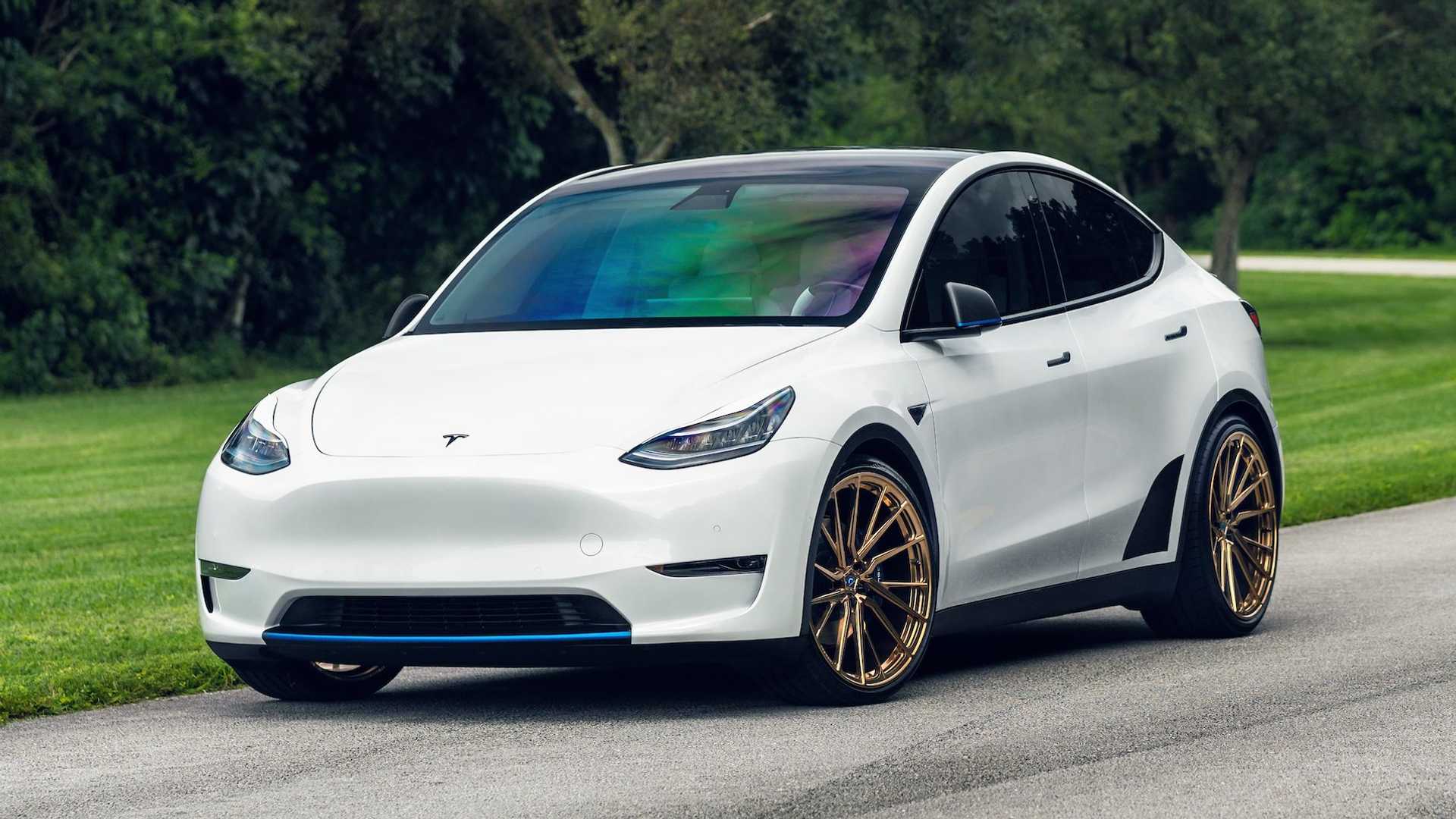
US electric vehicle manufacturer Tesla has begun deliveries of its locally made Model Y crossover vehicles in China.
The rollout of its Model Y automobiles in China was announced by Tesla via Twitter on Monday, accompanied by photos of the car being purchased from a company showroom. China is currently the largest auto market in the world.
Model Y crossover
The Model Y crossover vehicle is the second automobile manufactured and sold by Tesla in China. It was preceded by the Model 3, which started deliveries in 2020. Tesla's production of the Model 3 and Model Y lines began at its gigafactory in Shanghai in 2019.
The SUV is available at 339,900 yuan or $52,400 for the "long range" version, and 369,900 yuan or $57,000 for the "performance" version.
In a social media post, Tesla said deliveries of the Model Y started on Monday in cities including Shanghai, Hangzhou and Wuhan. To help customers feel at ease, the company's staff even included a "virus prevention" kit in the new vehicles, which included bottles of hand sanitizer.
Expanding in China
According to Tesla chief executive officer (CEO) Elon Musk, the Shanghai plant is a "template for future growth", with China increasingly becoming an important part of the company's global strategy.
In 2019, the automaker was able to beat its deadline to begin production in the country, with production starting just 10 months following the plant's groundbreaking. This gave additional confidence in the ability of Tesla to hit delivery targets amidst expansion.
Tesla became the first foreign car manufacturer to receive permission to open a factory in the country without a Chinese partner. It was also awarded a tax break for some of its cars, allowing it to lower its prices to attract more customers.
Additionally, the Model 3's lowered price enabled it to qualify for government subsidies.
Initially, the firm set a goal of producing 250,000 cars a year for the Shanghai factory before increasing it to 500,000 units thereafter. Last October, Tesla claimed that it has achieved the initial goal while "continuing to expand" capacity significantly.
The Model Y's launch is seen as an additional challenge to Tesla's Chinese rival Nio, which has its own line of electric SUVs.
Tesla has also shown that it is leaning towards its Chinese production, with its announcement in October that it will begin exporting Chinese-made vehicles to Europe as well as its plan to expand further in Asia, including an anticipated launch in India.
Deliveries amid the pandemic
During the second quarter of 2020, when the pandemic is at its height, Tesla was able to deliver 90,650 cars to customers. While this represented a 5% decline compared to 2019, it showed that it was not as badly hit as other automakers.






